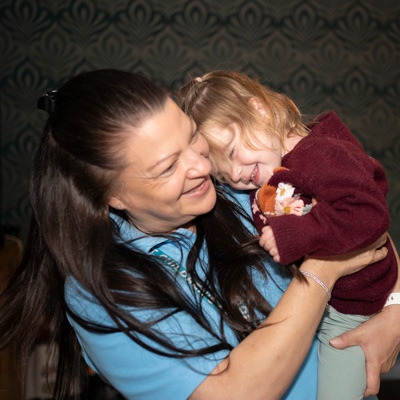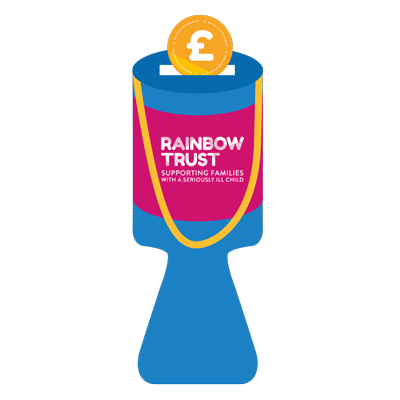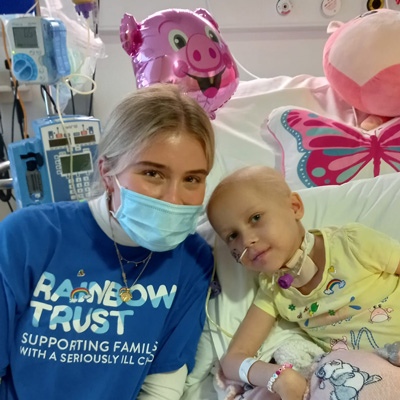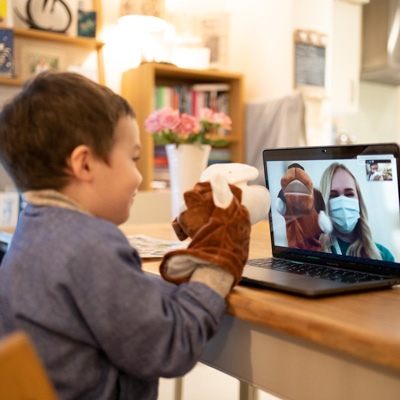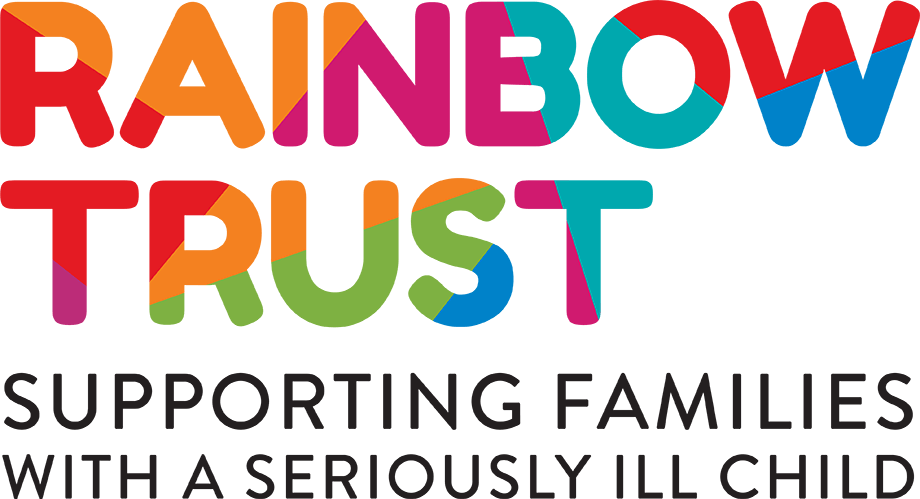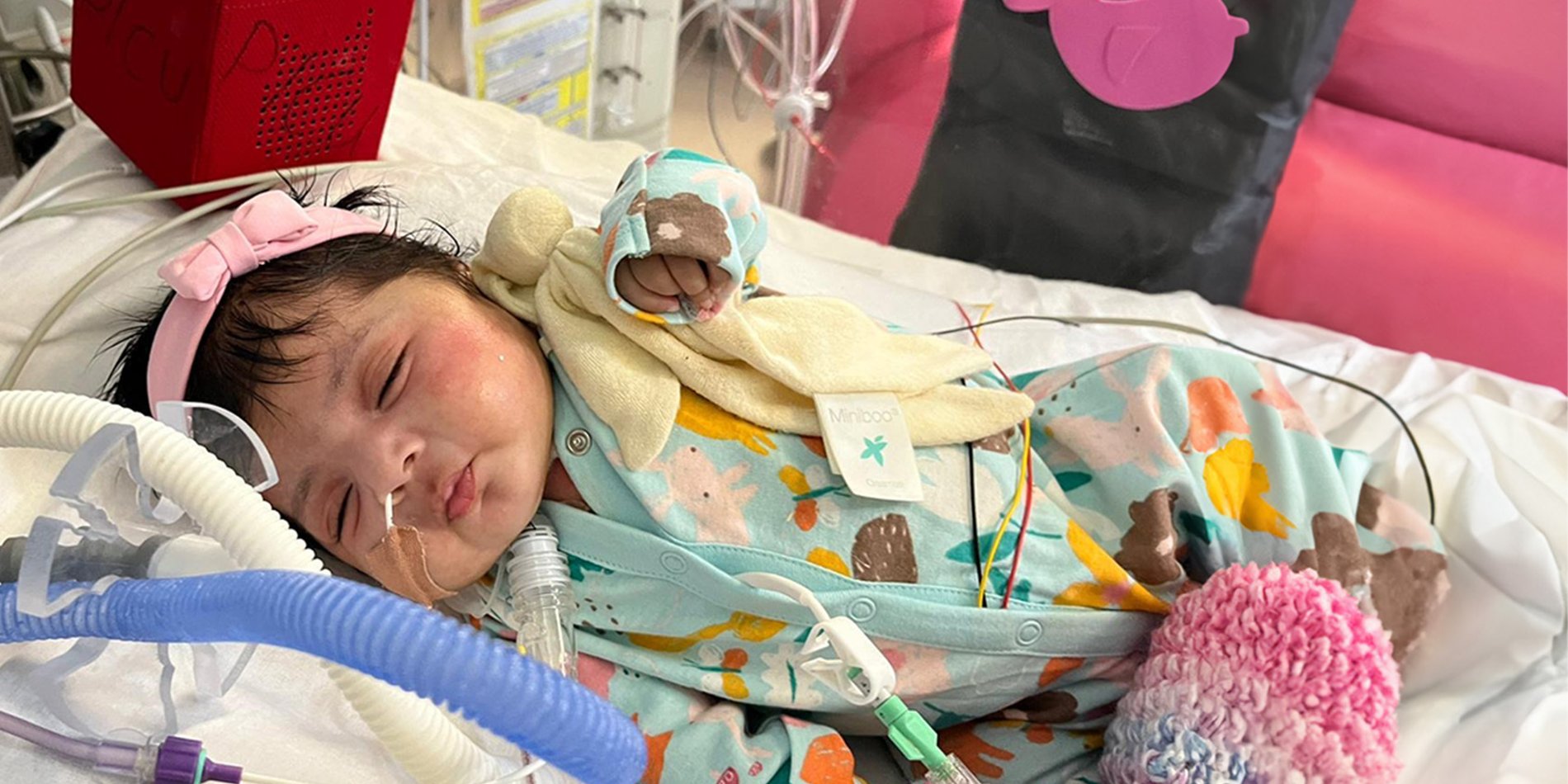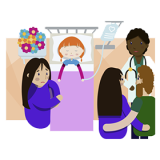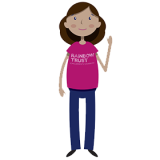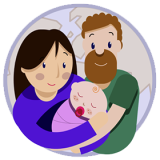After Aqsa was diagnosed with a very rare bone condition, a huge strain was put on family life. Family Support Worker Wendy began to support sisters Alisha and Maria, ensuring they receive the one-to-one support they need.
At just two days old, Aqsa was rushed from her hometown of Bristol to Birmingham Children's Hospital after being diagnosed with a rare bone condition called hypophosphatasia. She remained there for seven and a half months.
Aqsa is only the second child in the UK to be born with this condition, which causes her bones to be very fragile. She cannot walk or crawl and needs an assisted chair.
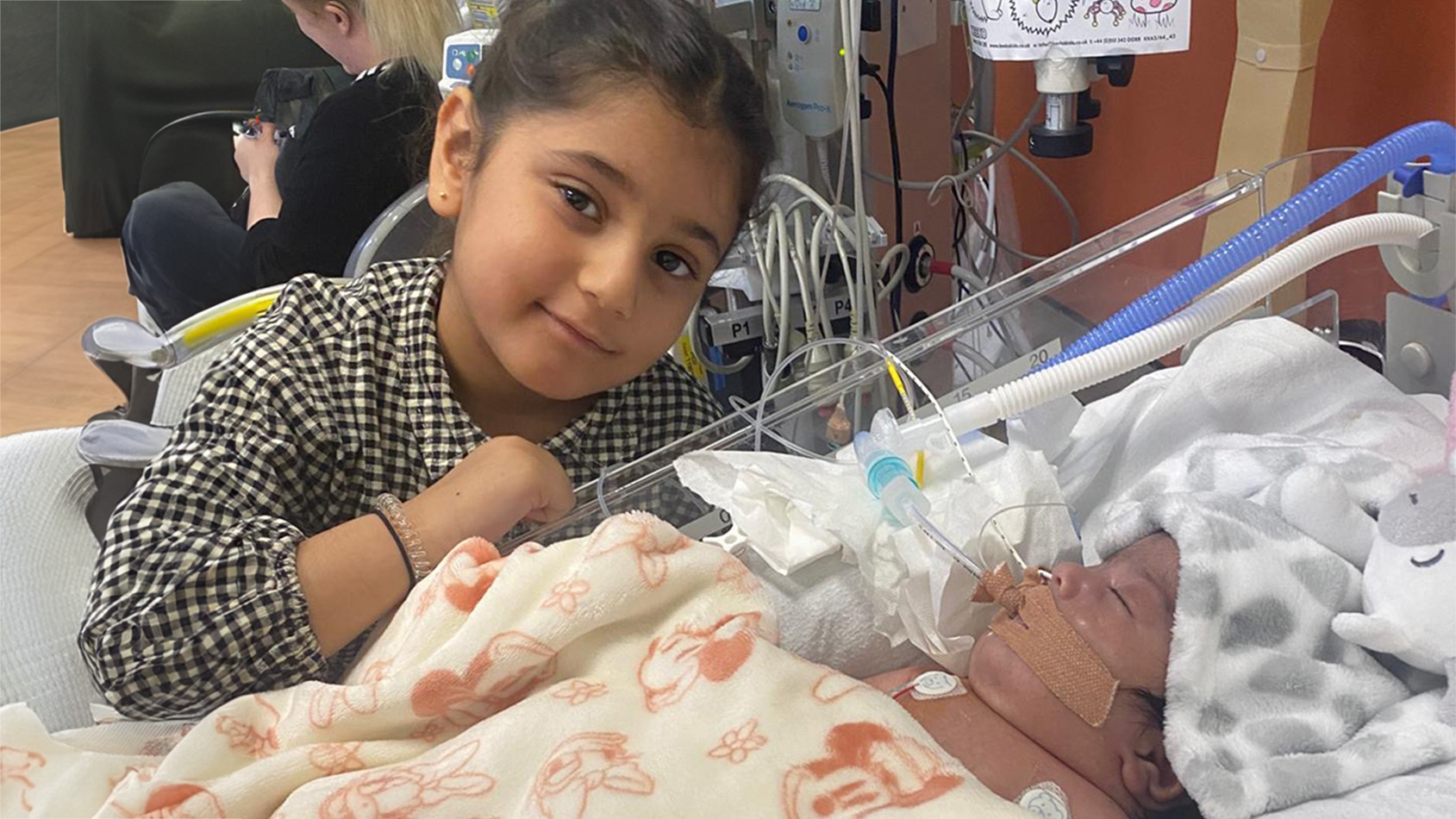
After giving birth, Aqsa's mum, Ayesha, was not well enough to travel to Birmingham so she had to wait to see her baby, not knowing what was happening with her. When Ayesha was able her and Ikhlaq, Aqsa's dad, travelled the 100 miles to Birmingham by coach and met their baby girl for the first time.
When they arrived, Aqsa was in a cot linked to many machines, including a ventilator to help her breathe. Ayesha and Ikhlaq were desperate to hold her but due to her fragile bones they were unable to for several months.
The seven months Aqsa spent at Birmingham Children's Hospital, and the uncertainty and worry of not knowing if Aqsa would survive, put a huge strain on the whole family.
Aqsa's sisters, Alisha, now 11, and Maria, now nine, struggled to understand what was happening and were very worried. To see their baby sister in so much pain was incredibly upsetting for them. Their normal emotional outlets and routines changed as the family was split apart and sometimes had to stay in Birmingham for long periods of time, impacting their education as their school attendance became poor.
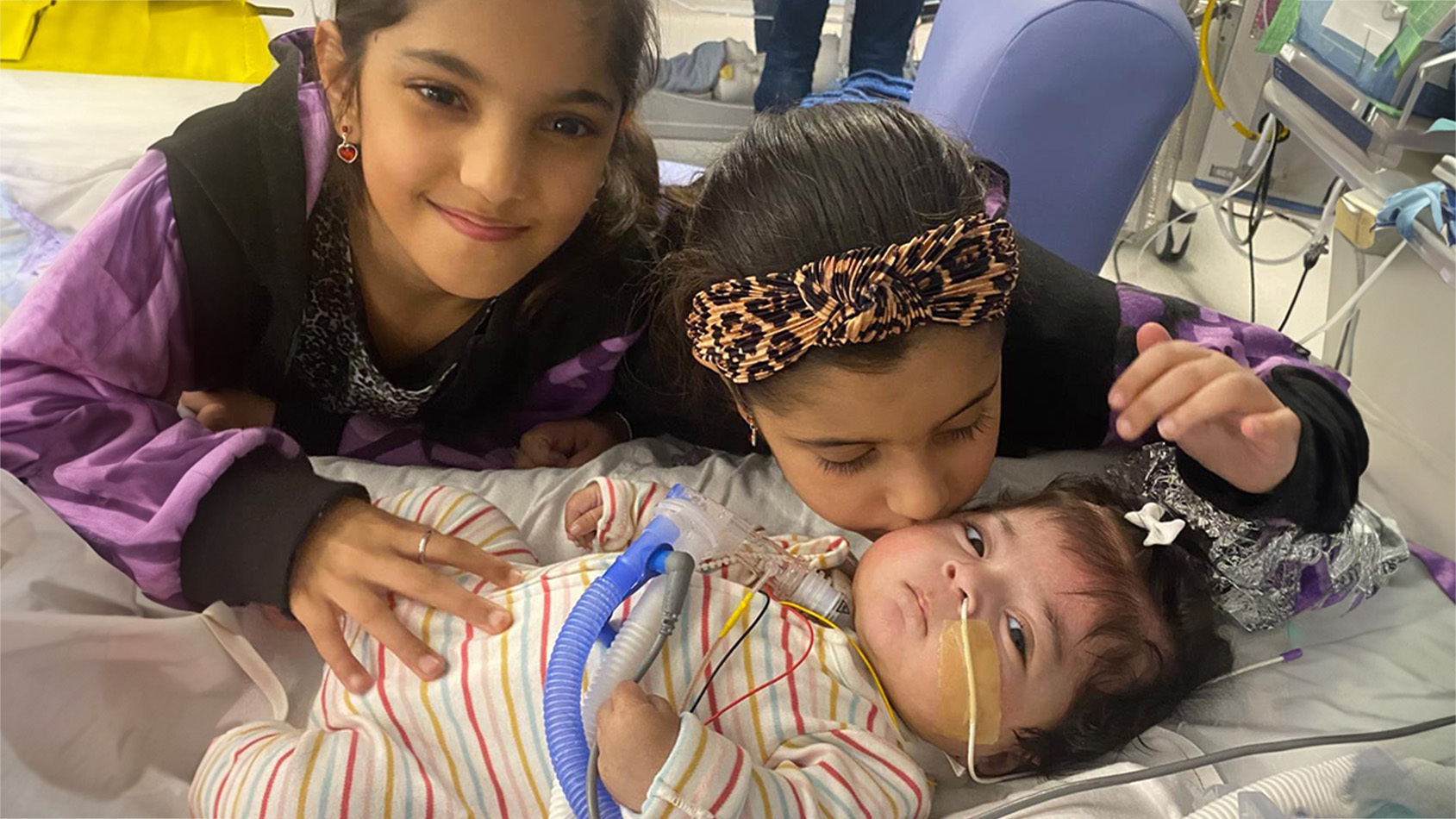
Ikhlaq is regularly in and out of hospital due to his own health problems. He is partially blind, meaning he is unable to care for Aqsa. Ayesha is a full-time carer for both Aqsa and Ikhlaq.
Ayesha gets little respite and some nights she doesn't get to sleep. She also has less time to give to Alisha and Maria who struggled with the isolation this brought and the lack of opportunity to be a regular child.
Transport was one of the many worries for the family. Ayesha cannot drive. This means the family relies on public transport and the expensive coach and train journeys to get from their home to Birmingham became a financial struggle, especially after Ayesha had to stop working to care full-time for Aqsa. On some occasions the family would receive emergency calls from the hospital and Ikhlaq would have to immediately catch the first available coach to Birmingham, spending the two-hour journey in a state of panic, not knowing how he would find his baby daughter.
Aqsa was transferred back to Bristol Hospital where she spent over 12 months. Despite being moved closer to home, life remains hard for the family.
In March 2024, the family was referred to Rainbow Trust by Bristol Hospital. Family Support Worker Wendy began providing tailored support, helping the family with the many challenges they are facing.
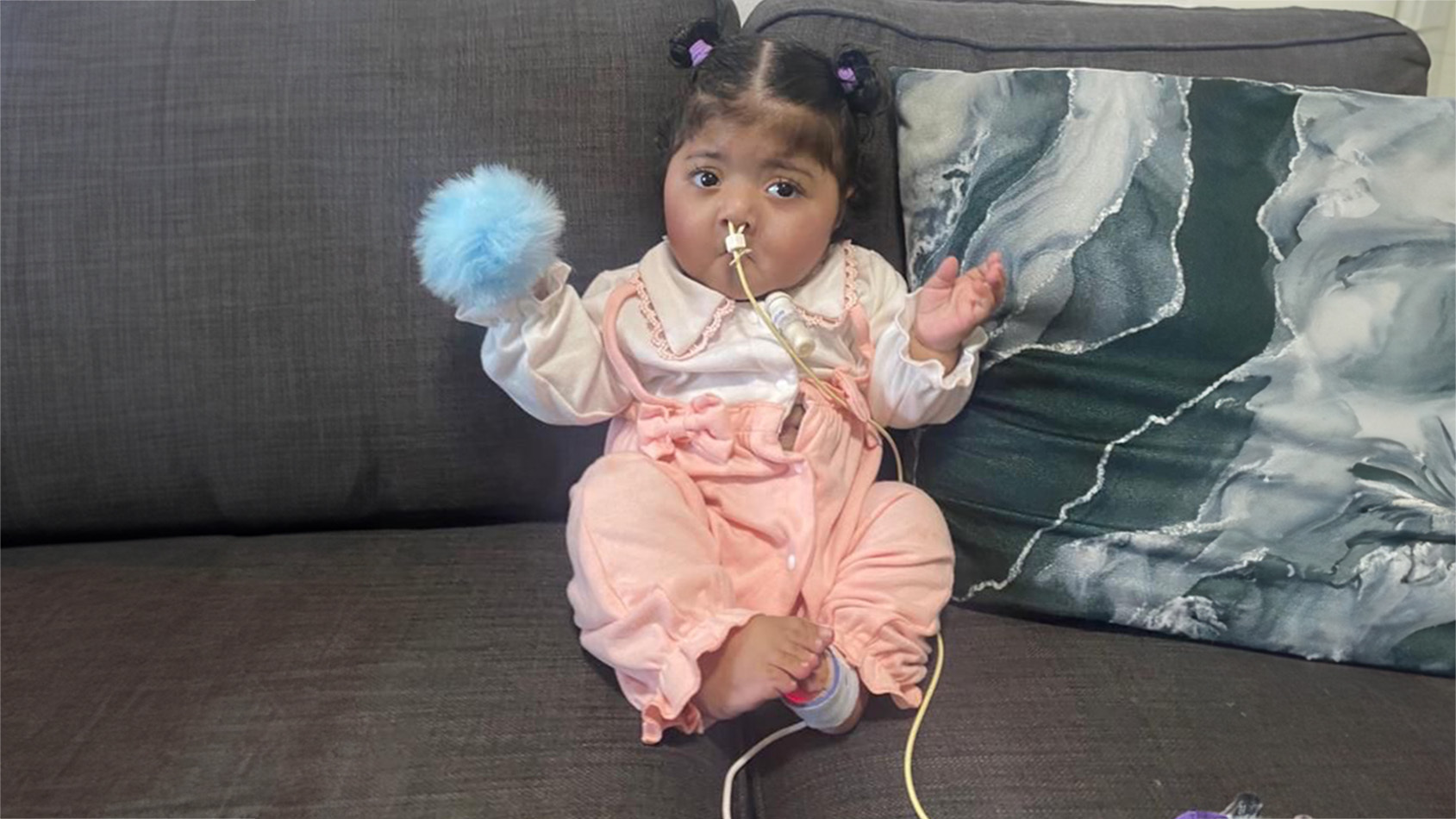
Wendy primarily supports Alisha and Maria, reducing their isolation and helping to support their confidence and educational, emotional and social needs.
Wendy takes Alisha and Maria out, giving them a chance to spend time outside of the house and to do things they otherwise would not get to do. They have attended drop-in groups run by Rainbow Trust's South West Care team and have visited parks, zoos and farms.
These trips allow Alisha and Maria to be like regular children, have time when the focus is on them, and to develop self-confidence and social skills. They also give Ayesha some respite, the chance to focus on Aqsa without worrying about them, and time to get some jobs done around the house.
“Alisha and Maria were nervous and scared about going out with Wendy initially but when they came back they were so happy; that made me so happy. Now they get so excited knowing that Wendy is coming round.”
Aqsa's dad, Ikhlaq
Wendy also spends quality time with Alisha and Maria at home, playing games, doing arts and crafts, giving them creative outlets to express their emotions.
“They always look forward to Wendy's visits. The girls have become much more confident since she started spending time with them, and they are more comfortable about talking and opening up” said Iklaq.
Because Alisha and Maria attend different schools and Aqsa requires constant supervision due to her fragile bones and complex needs, school transport has been both challenging and has taken a financial toll on the family with Alisha often having to take a taxi by herself.
This further impacted their school attendance. By providing transport twice a week Wendy helps to ease the family's financial strain, improve Alisha and Maria's school attendance and ensure that Alisha gets there safely.
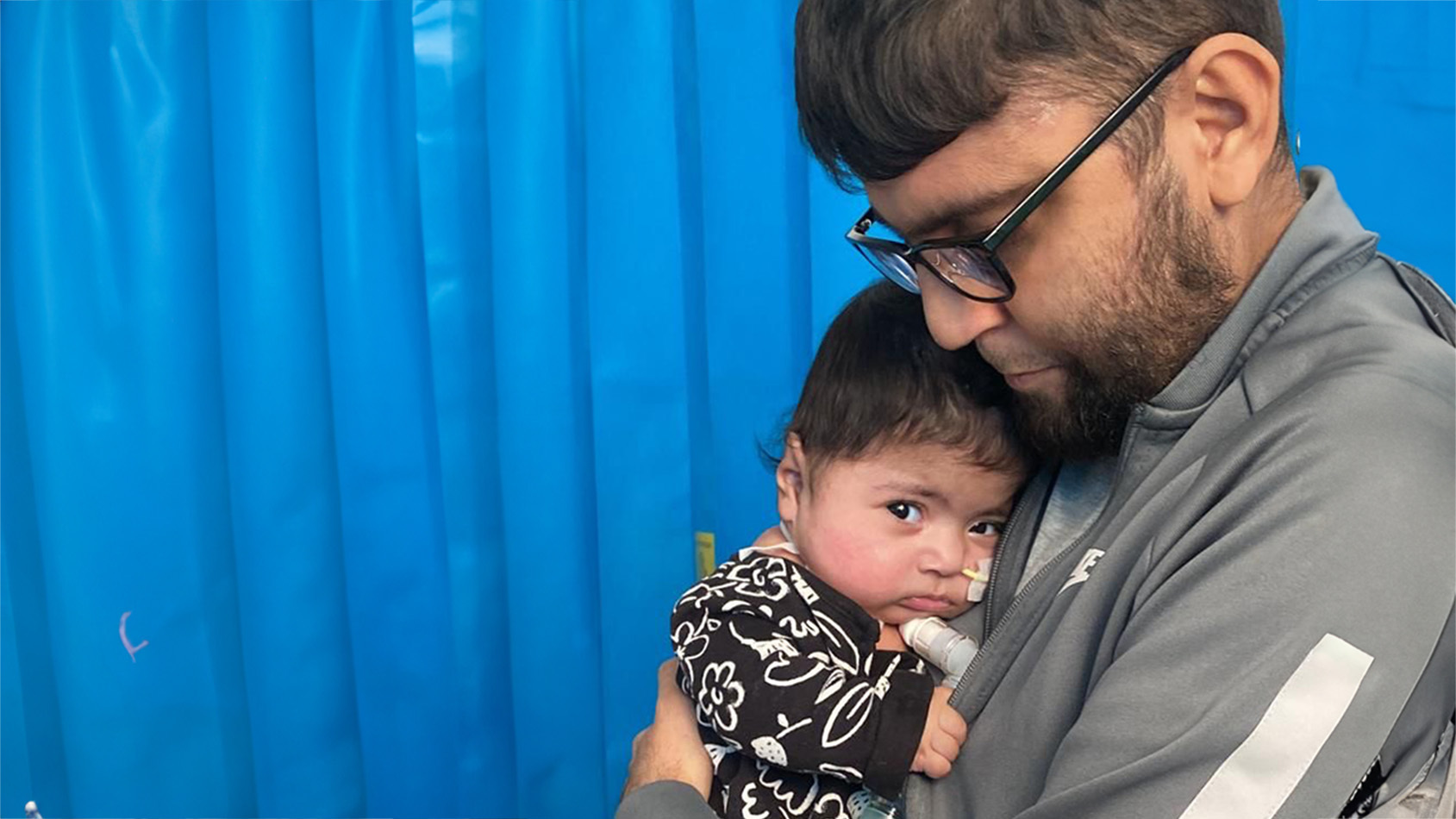
By creating a comfortable and supportive environment during these journeys, Wendy offers Alisha valuable one-to-one time to talk and express her feelings. This has been especially helpful as Alisha transitions to secondary school and into an unfamiliar new routine. Wendy has further supported Alisha's transition by informing the school about Alisha's responsibilities as a young carer, which they were unaware of.
Alongside supporting Aqsa's sisters, Wendy provides a space for Ayesha and Ikhlaq to talk about how they are feeling and to discuss any issues, concerns or questions they have with someone who understands their situation.
Wendy also supports the family with paperwork, filling in forms and signposting the family to organisations who have provided further support, including a Motability car and driving lessons for Ayesha.
“Wendy does so much, even things without us asking. She goes out of her way to help us all; we are so grateful. The support is incredible, mind blowing.”
Aqsa's dad, Ikhlaq
With your help Family Support Workers like Wendy can make the challenges that families living with childhood illness face that bit more manageable.
Please donate today to help us support more seriously ill children and their families just like Aqsa's.
